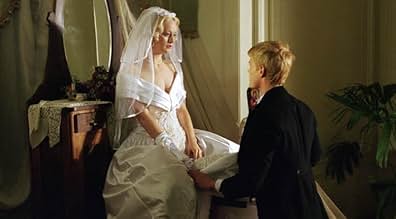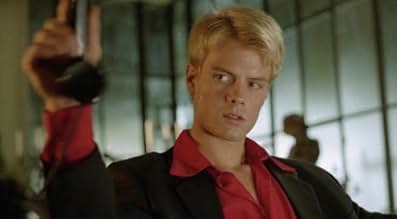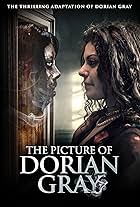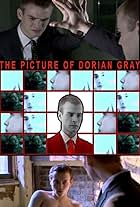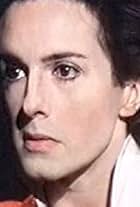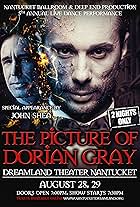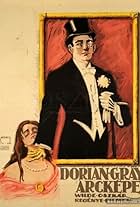The Picture of Dorian Gray - Il ritratto del male
Titolo originale: The Picture of Dorian Gray
- 2004
- 1h 30min
VALUTAZIONE IMDb
3,9/10
605
LA TUA VALUTAZIONE
Aggiungi una trama nella tua linguaA corrupt young man somehow keeps his youthful beauty, but a special painting gradually reveals his inner ugliness to all.A corrupt young man somehow keeps his youthful beauty, but a special painting gradually reveals his inner ugliness to all.A corrupt young man somehow keeps his youthful beauty, but a special painting gradually reveals his inner ugliness to all.
Recensioni in evidenza
is only acceptable piece of this movie. a beautiful Dorian who must be script, story, acting. like a statue of Antinous. but any Hadrian is present. an exercise to amusing. torture for poor Wilde and a story without sense.but the joy of new adaptation of a novel who may be easy transform in childish game. the game with mirrors is interesting only for gamer. problem is novel. profound, delicate, clever, it is not minced or ball for dogs. and its ideas are spider webs not place for strange experiments. so,Josh Duhamel is only precious chair in a dusty room.and this may be a great sin in this case. because Dorian is far by this small film.
I don't think I have ever seen a worse ensemble cast. I have seen many a high school play with better acting. All the most basic mistakes are made. It should only be shown to young aspiring actors as a training video in what not to do. Students: note the grossly ineffective vocal inflections, the myopic combinations of fake-English-lord and California slurring, the twitching rather than walking, the gesticulating wildly while raising shoulders and rocking back and forth and jerking the head. Note with what genius the actor begins in the high register and marches upward every higher toward what someone in rehearsal must have underlined as the key word. Ahhh and the key word turns out to always be an adjective and always "but-no-cigar" close to a word Oscar surely worried over a bit more.
Clearly the whole budget was spent on hiring the locations and nothing was left over to hire any talent to stand in front of them...
Horror is definitely the right genre for this picture but I doubt it was the horror that the Director intended.
Clearly the whole budget was spent on hiring the locations and nothing was left over to hire any talent to stand in front of them...
Horror is definitely the right genre for this picture but I doubt it was the horror that the Director intended.
In some ways it must be an insurmountable task to adapt any book, let alone a classic, to a moving picture. Certainly seems the case with other failed film attempts of Dorian Gray including Colin Firth's (yes the Oscar winner has a bad film) most recent version. But there's something oddly moving on an intellectual level to this Josh Duhamel version. It is certainly not without it's faults and limitations, but there's touch of Wilde that so many have lack.
I am a high school teacher currently teaching this book so my analysis is based less on Hollywood criticisms (like acting) and more on the overall message I believe the filmmakers were trying to articulate. For example, the most controversial change that this director, David Rosenbaum, made was casting Basil a straight woman, not a homosexual male. To be offended by that is to not understand Oscar Wilde or Dorian Gray. For the record, I am a gay woman. Oscar Wilde repeatedly said he had not made a "gay book" or intended for "homosexuality" to have overshadowed his work (and life). Wilde himself called his book a strange love triangle between his three personalities: the side he thought others saw, the side he saw, and the side he wished those would see. He often called Basil his feminine side. So it seems perfectly fitting that, after so many failed attempts to adapt Dorian Gray into an overt gay message film (talk about raising Wilde from the dead), these filmmakers would try a more cerebral version where the artist is feminine. How does that dynamic effect artist, sitter and critic? It is also interesting that the best and most realized performance comes from the female lead, Rainer Judd.
I think the setting, which they say takes place in "the land of hypocrite" also has the wonderful flowery and natural feel of the book's language. Sure the locations of the book describe, on the surface and at first glance, stuffy London parlors, but the rhythm and tone feel like the sea and gardens photographed so beautifully in this film. And the film is right to state at the start that this is a story steeped in hypocrisy, an argument they seem willing to fight from the beginning.
There's more to discuss, both positive and negative, but maybe because there is more to discuss is what warrants a viewing of this film. I give it a 9 out of 10 not because it's a classic, but because it dares to break apart a classic in a challenging way -- Wilde would tip his hat at the bold risk regardless the outcome.
I am a high school teacher currently teaching this book so my analysis is based less on Hollywood criticisms (like acting) and more on the overall message I believe the filmmakers were trying to articulate. For example, the most controversial change that this director, David Rosenbaum, made was casting Basil a straight woman, not a homosexual male. To be offended by that is to not understand Oscar Wilde or Dorian Gray. For the record, I am a gay woman. Oscar Wilde repeatedly said he had not made a "gay book" or intended for "homosexuality" to have overshadowed his work (and life). Wilde himself called his book a strange love triangle between his three personalities: the side he thought others saw, the side he saw, and the side he wished those would see. He often called Basil his feminine side. So it seems perfectly fitting that, after so many failed attempts to adapt Dorian Gray into an overt gay message film (talk about raising Wilde from the dead), these filmmakers would try a more cerebral version where the artist is feminine. How does that dynamic effect artist, sitter and critic? It is also interesting that the best and most realized performance comes from the female lead, Rainer Judd.
I think the setting, which they say takes place in "the land of hypocrite" also has the wonderful flowery and natural feel of the book's language. Sure the locations of the book describe, on the surface and at first glance, stuffy London parlors, but the rhythm and tone feel like the sea and gardens photographed so beautifully in this film. And the film is right to state at the start that this is a story steeped in hypocrisy, an argument they seem willing to fight from the beginning.
There's more to discuss, both positive and negative, but maybe because there is more to discuss is what warrants a viewing of this film. I give it a 9 out of 10 not because it's a classic, but because it dares to break apart a classic in a challenging way -- Wilde would tip his hat at the bold risk regardless the outcome.
Man, all I am saying is that, wooden line readings/self-aware poses by the couch/misunderstandings of the material/general lack of facial expressions aside, that Branden Waugh is one handsome dude. When are we going to see more of him, am I right?
To address another issue, it seems pretty obvious to me that the story takes place beginning around the time of the first nuclear weapons (late thirties/early forties) and then skips ahead to sometime in the seventies, as evidenced by some sexy disco and wide lapels. Also this would account for the non-immortal, non-devil-painting-having characters having gray hair.
As for Basil being a woman, I believe Wilde intended to maker her a woman in the first place but then maybe he forgot? I'm not sure. But he made Basil a painter. And come on, folks, guys don't paint.
To address another issue, it seems pretty obvious to me that the story takes place beginning around the time of the first nuclear weapons (late thirties/early forties) and then skips ahead to sometime in the seventies, as evidenced by some sexy disco and wide lapels. Also this would account for the non-immortal, non-devil-painting-having characters having gray hair.
As for Basil being a woman, I believe Wilde intended to maker her a woman in the first place but then maybe he forgot? I'm not sure. But he made Basil a painter. And come on, folks, guys don't paint.
As I see it, one important element is missing from David Rosenbaum's lavish production of the Oscar Wilde morality story and that is Oscar Wilde himself. His words are all here, the witticisms and wry comments on social manners that shocked Victorian England, but they rarely punch through the wooden acting and listless pace. It must have seemed a good idea to do a modern remake of the now classic tale of the portrait that ages while the sitter himself remains eternally young but what was perhaps less wise was to cast as principles actors who give the impression they don't fully understand the value of what they're saying.
Literary gems trip from their lips like so many throwaway lines and I kept wanting to tell them to slow down the timing and to pace themselves. In the title role, Josh Duhamel (NBC's Las Vegas) lacks, in my opinion, the experience to carry the role of a man who has sold his soul to the Devil. We are told he is festering in his own private hell but where is the fire behind his eyes, the internal destructive force driving him towards his own annihilation? Having purchased immortality, the young man embraces a life of perversion and debauchery which, for the most part, is played out off screen. Whether the reasons are economic or moral, I neither know nor care but as a member of an audience, I have to see for myself just how far he has sunken if the final climactic scene is to work for me. The cynic Harry Wotton, once splendidly portrayed by George Sanders, is a disappointment here too in the hands of Branden Waugh. Harry is an individual loath to recognize goodness in anything or anyone but Waugh doesn't exude the obligatory world weariness for all his cigarette waving and posing by the sofa. Rosenbaum took the unusual step of casting a woman, Rainer Judd, in the role of the painter, Basil Ward and it succeeds, surprisingly enough. She brings a lightness to the trio of principals which might otherwise have sunk under its own weight. The director explains on the IMDb message board the reason for this notable bit of creative casting...because it was the natural thing to do after he read that Wilde wanted Basil to represent his feminine side in what was, in effect, a love triangle between three men. I liked particularly the choice of opulent locales in Bulgaria which were beautifully photographed by Voythech Todorow. The film was viewed at the American Film Market 2004 in Santa Monica
Literary gems trip from their lips like so many throwaway lines and I kept wanting to tell them to slow down the timing and to pace themselves. In the title role, Josh Duhamel (NBC's Las Vegas) lacks, in my opinion, the experience to carry the role of a man who has sold his soul to the Devil. We are told he is festering in his own private hell but where is the fire behind his eyes, the internal destructive force driving him towards his own annihilation? Having purchased immortality, the young man embraces a life of perversion and debauchery which, for the most part, is played out off screen. Whether the reasons are economic or moral, I neither know nor care but as a member of an audience, I have to see for myself just how far he has sunken if the final climactic scene is to work for me. The cynic Harry Wotton, once splendidly portrayed by George Sanders, is a disappointment here too in the hands of Branden Waugh. Harry is an individual loath to recognize goodness in anything or anyone but Waugh doesn't exude the obligatory world weariness for all his cigarette waving and posing by the sofa. Rosenbaum took the unusual step of casting a woman, Rainer Judd, in the role of the painter, Basil Ward and it succeeds, surprisingly enough. She brings a lightness to the trio of principals which might otherwise have sunk under its own weight. The director explains on the IMDb message board the reason for this notable bit of creative casting...because it was the natural thing to do after he read that Wilde wanted Basil to represent his feminine side in what was, in effect, a love triangle between three men. I liked particularly the choice of opulent locales in Bulgaria which were beautifully photographed by Voythech Todorow. The film was viewed at the American Film Market 2004 in Santa Monica
Lo sapevi?
- QuizDarby Stanchfield's debut.
- ConnessioniVersion of Dorian Grays Portræt (1910)
I più visti
Accedi per valutare e creare un elenco di titoli salvati per ottenere consigli personalizzati
- How long is The Picture of Dorian Gray?Powered by Alexa
Dettagli
- Data di uscita
- Paese di origine
- Sito ufficiale
- Lingua
- Celebre anche come
- The Picture of Dorian Gray
- Luoghi delle riprese
- Aziende produttrici
- Vedi altri crediti dell’azienda su IMDbPro
Botteghino
- Budget
- 3.000.000 USD (previsto)
- Tempo di esecuzione1 ora 30 minuti
- Colore
- Proporzioni
- 1.78 : 1
Contribuisci a questa pagina
Suggerisci una modifica o aggiungi i contenuti mancanti

Divario superiore
By what name was The Picture of Dorian Gray - Il ritratto del male (2004) officially released in Canada in English?
Rispondi
